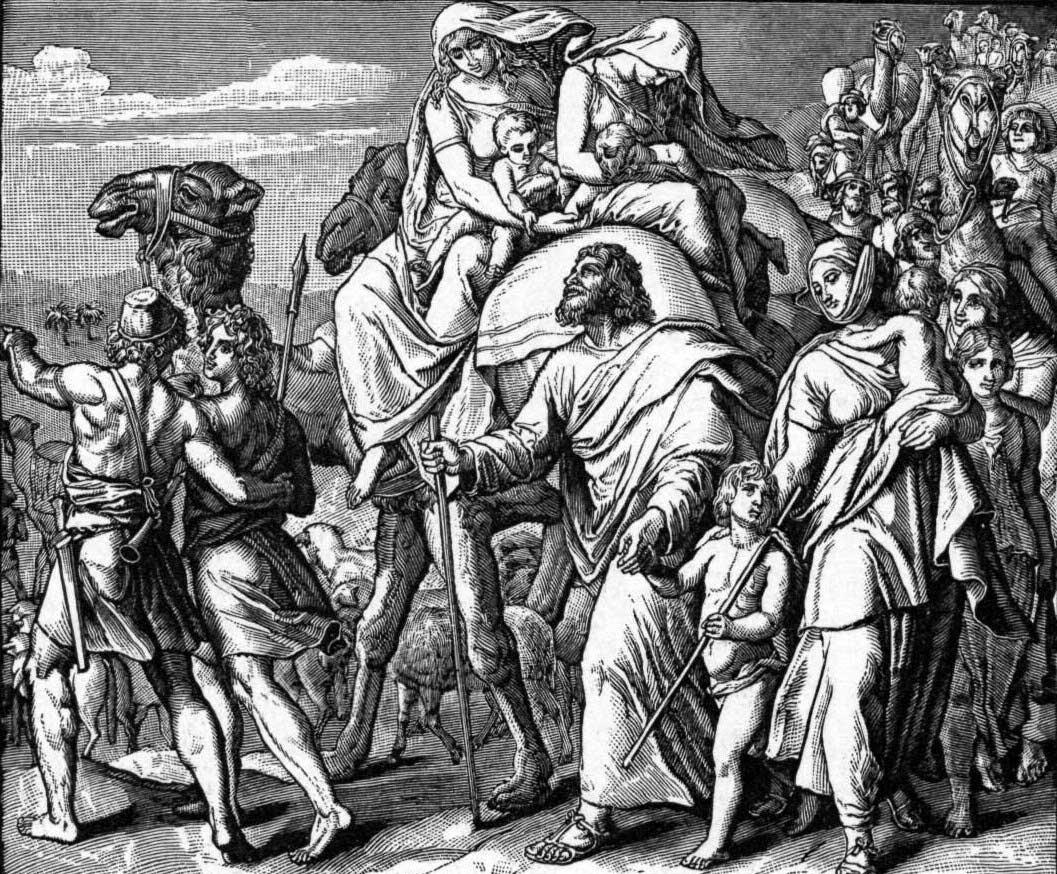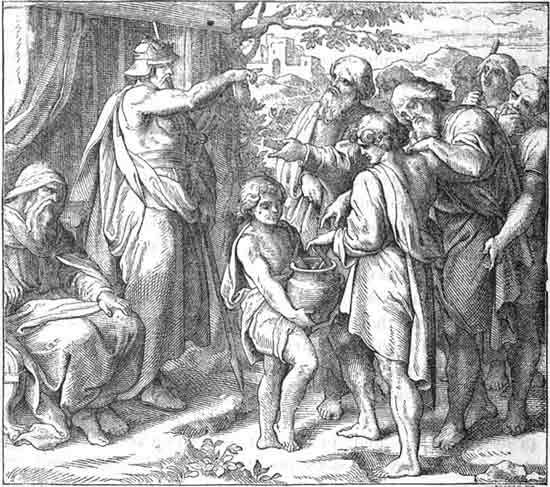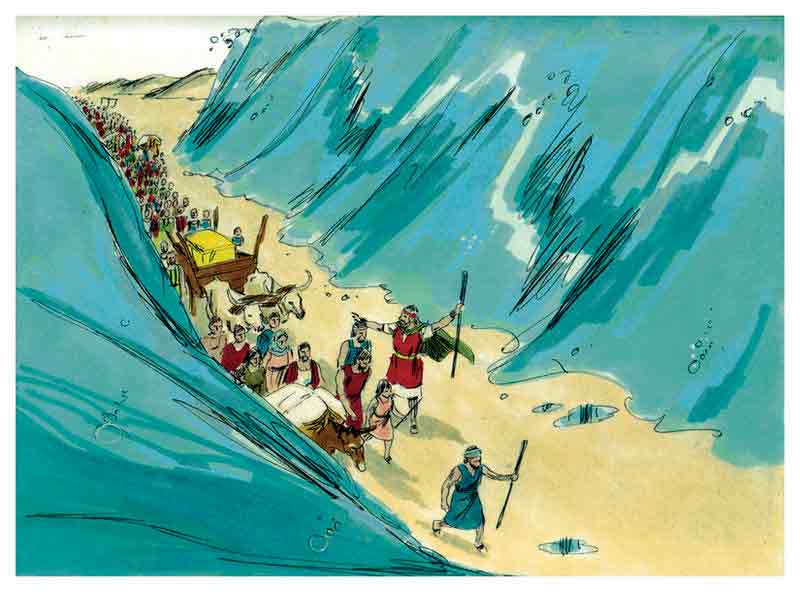 The event that has been considered the most significant of all in the history of the Jews – the ‘Exodus’ had indeed begun!
The event that has been considered the most significant of all in the history of the Jews – the ‘Exodus’ had indeed begun!
The Jews were forced to migrate to Egypt from diverse places due to the famine that had hit the regions outside Egypt. The sentiment of ‘One nation’…. the ‘Promised Land’, the land that was granted to them by God; was the sentiment that tied together all the Jews as they were breaking away from centuries of slavery in Egypt. The foundation of the ‘Israel’ of the future was, in a way, laid.
And while in the process of exiting from Egypt, they had of course not forgotten the word that was given to one of their patriarchs, Joseph by their other ancestors (Joseph’s brothers). Joseph’s brothers had promised that his remains would be buried in the ‘Promised Land’ whenever their descendants would return to it. Hence the Jews carried with them, the bones of Joseph for burial.
The huge congregation of Jews was slowly following the divine Pillar of Clouds. Their hearts were filled with the sentiment that they were moving to their very own land, they were moving homewards, had filled their minds. However, on the journey from the land of Goshen to the land of Canaan, instead of leading them along what might have been the obvious route, viz. along the Mediterranean Sea, God led them southwards, and they travelled through certain places through the desert, Pi-Ramesses, Succoth, Etham in Goshen being some of them. Like God had instructed Moses beforehand, their first important halt was going to be Pi-Hahiroth on the coast of the Red Sea.

The story also reveals the reason why God chose to take the long route. Had they taken the shorter route through the coast of Mediterranean, there were chances of the Jews facing hostilities from the local people and the kings. Having lived a life of slavery for centuries together, had left the Jews feeble, especially mentally and breaking free of these fetters of mental bondage was going to prove a near impossible task for most of them, atleast at the given moment. The Hebrews were in no condition to face any challenge then. Rather than face war, they would have submitted to a life of slavery in Egypt. It was to avert this likely danger that God lead them through the longer route. Moreover, before they reached Canaan, God took them through 42 different places, making them go around the desert for 40 long years so as to wipe off the influence that slavery had had on them; so says the story.
In a few days the Jews reached Pi-Hahiroth on the coast of the Red Sea. Meanwhile, the Pharaoh, who was forced to free the Jews from the slavery in Egypt, began to have second thoughts about his own decision. He kept feeling that freeing the Jews was a big mistake. The Egyptians too who had got used to enforcing their authority on the slave-Jews were feeling unsettled.
This was the time when the Pharaoh’s spies informed him of the southward journey of the Jews. The Pharaoh was unable to fathom why the Jews might have chosen to go southwards rather than taking the shorter coastal route along the Mediterranean. He tried to convince himself that the Jews might have lost their way. On learning however that they were still within the boundaries of Egypt, the desire to conquer and enslave them began to take root in the Pharaoh’s mind. Without wasting any time he mobilized his troops and decided to set out in pursuit of his former slaves. He was himself to lead this contingent.

But again it was God’s will and so God had warned Moses beforehand about this; so says the story. God had said that as the Pharaoh’s sins had exceeded all conceivable limits; he had to be punished and this was a necessary prerequisite for the purpose,
The news that the Pharaoh had already set out with a troop armed to the teeth and comprising of six hundred chariots, gave the Hebrews cold feet and sent chills down the spine of many.
Some of the brave groups from this congregation of Jews were ready to take the Egyptian forces head-on. At the same time there were others who on one hand doubted their own victory in case of the conflict but on the other, were not ready to fall again in the dungeons of slavery. They would rather have drowned themselves in the sea.
But there was yet another group that did not mind opting for a life of slavery rather than facing war.
….and it was the people of this group who sulked and grinding their teeth, started cursing Moses saying – “Were there no graves in Egypt that you brought us here to die in the desert?” It was this very group of people, who were all along unwilling to face any challenge and so had been the first to oppose Moses even when he had toured the land of Goshen to deliver the word of God.
This was the most difficult of the tests that Moses had faced. Praying to God for mercy, he calmly began to allay their anxieties and more importantly, requested them not to lose faith in God.
The Pharaoh’s army was gradually closing in on them as Moses continued with his dialogue. But they were so deeply absorbed in the discussion that they just did not notice something very significant – the Pillar, which, in the form of clouds during the day and that of fire by the night had led them from the front showing them the way, had now shifted and stationed itself behind them. It was now right between the assemblage of the Jews and the Egyptian army. As before, the Pillar continued to give light to the Jews even by the night but generated pitch darkness before the Egyptian army even by the day; says the story.
Faced with sea on one side and the Egyptian army on the other, the story of how the Israelites emerged unscathed from this situation, is extremely thrilling.
(To be continued…)












